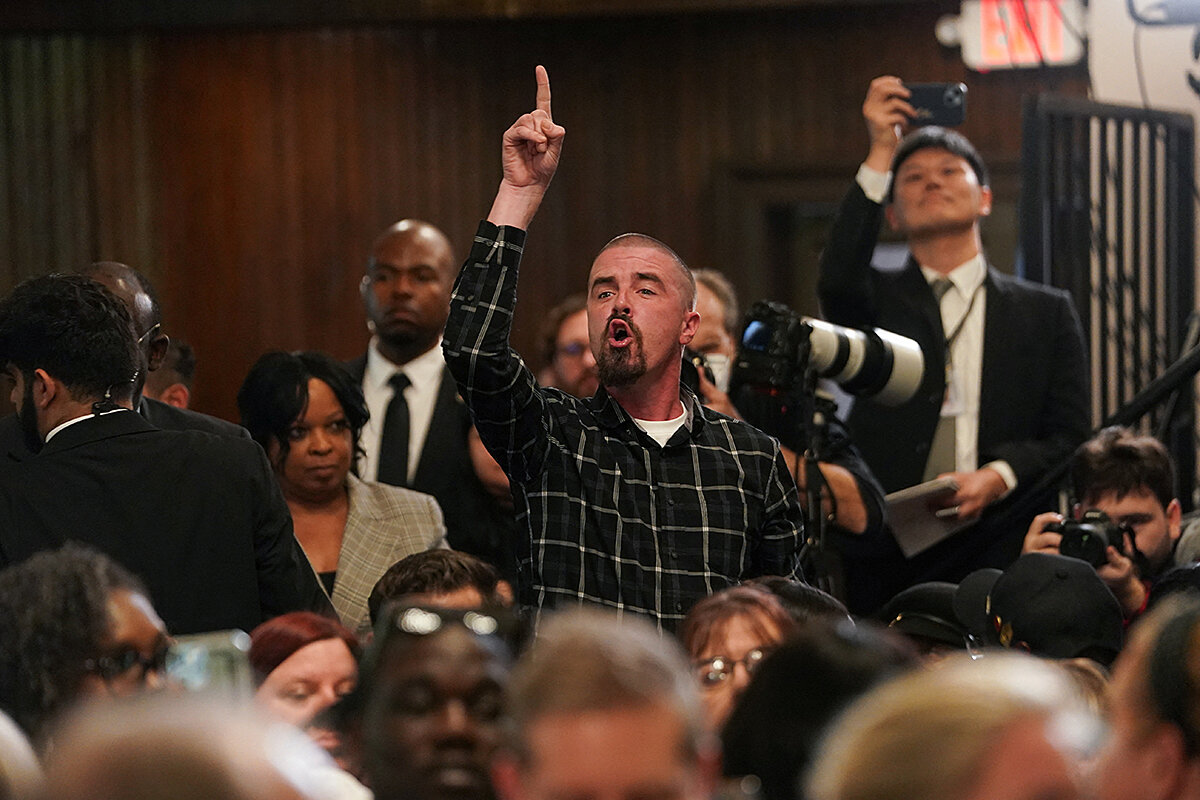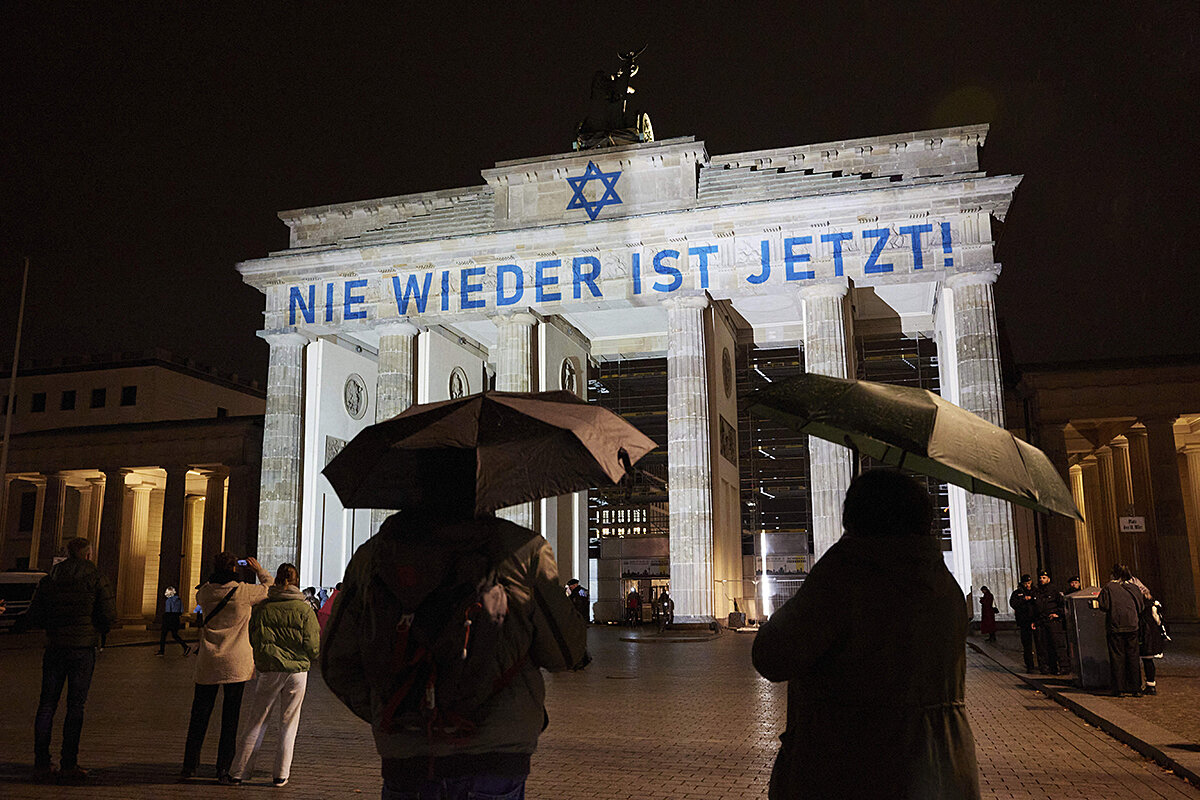Around the globe, the politics of the war in Gaza is local
Loading...
| Washington
Shortly after Hamas fighters stormed across the Gaza border into Israel, killing and kidnapping hundreds of civilians and committing a range of atrocities, social media channels favored by India’s ruling Hindu nationalists lit up with dire warnings.
The common-thread message: Hindu-majority India, with its large Muslim minority, risked suffering the same fate as Israel.
Social media accounts associated with Prime Minister Narendra Modi’s Bharatiya Janata Party spun a scenario equating India’s Muslims with Hamas and jihadist extremism. Calling Israel’s war “our war,” some posts argued that the only way India could avoid a similar outcome would be to redouble support for Mr. Modi and the BJP in upcoming local and national elections.
Why We Wrote This
In what will be an extraordinary year of elections around the globe, the Israel-Hamas war could play an outsize role in a number of countries where global issues rarely have significant domestic political impact.
“In the days since the Oct. 7 attacks, we’ve seen posts claiming that if Modi loses this year’s elections, there will be a genocide of Hindus in India,” says Praveen Donthi, senior India analyst with International Crisis Group in New Delhi.
“Of course such claims are baseless,” he adds, “but they demonstrate how these right-wing elements are using the events in Israel and Gaza to villainize Muslims and project their Islamophobic agenda.”
As it turns out, India is not the only country where the war in Gaza is having an impact on politics.
An undying interest in the conflict
In what will be an extraordinary year of elections around the globe – with as much as 40% of the world’s population casting a ballot – the Israel-Hamas war could play an outsize role in a number of countries where global issues rarely have significant political impact.
Those countries range from Indonesia, the world’s largest Muslim-majority state, to the United States.
In Indonesia, the war has forced candidates in next month’s presidential election to finesse a delicate two-step dance in which they support the widely popular Palestinian cause while rejecting Islamist extremism, which has afflicted the country.
And in the U.S., President Joe Biden’s reelection prospects have been hit by frustration among key elements of the coalition that delivered him to the White House – notably young voters, African Americans, Arab Americans, and other minorities – with the president’s unwavering support for Israel during its campaign in Gaza.
Those differences have bled into an argument over whether such criticism constitutes antisemitism.
What the war’s impact on politics across much of the globe suggests, some experts say, is an undying interest in the Israeli-Palestinian conflict – when some had thought the decades-old issue was losing its global salience.
“We’re seeing it’s still true that anything related to Israel and the Palestinians is of outsized interest,” says Daniel Kurtzer, a former U.S. ambassador to Egypt and Israel who is now a professor of Middle East policy studies at Princeton University.
“There are a lot of wars, and many where a lot more people have been killed,” he adds, “but when it’s something involving the Israeli-Palestinian conflict, it seizes the world’s attention.”
An example of “glocalization”
That does not mean global reactions to the war or its political ramifications have been uniform. Indeed, some see in the global impact a phenomenon social scientists have dubbed “glocalization,” in which an issue of global interest has differing impacts depending on particular national interests and motivations.
Thus, in India, where Hindu nationalists have been demonizing Muslims for years as part of their pursuit of a unitary Hindu state, the focus has been on Hamas’ horrific attacks. But in Muslim countries and across much of the West, public attention has fixed more on Israel’s punishing destruction of Gaza and the staggering civilian death toll.
India’s dominant outlook on the war reflects a stark shift from a championing of the Palestinian cause under successive Gandhi governments to “a pro-Israel stance,” says Mr. Donthi of International Crisis Group.
“In the Hindu nationalists’ worldview, India should follow Israel’s example and become a Hindu-centric state in the way Israel is a Jewish state – and India should treat its Muslims the way Israel treats the Palestinians in Palestine,” he says.
“Officially the government supports a two-state solution,” he adds, “but politically there is tacit approval of Modi’s portrayal as the last bulwark against Islamist terrorism.”
Another unique response to the war in Gaza can be found in Germany, where an unquestionable dedication to Israel’s security – as atonement for its Nazi past and the Holocaust – has collided with growing criticism of Israel and a clamor to recognize other stains on German history.
“We’ve seen a spike in the last two years in discussions about how Germany remembers the Holocaust,” says Sina Arnold, a senior researcher and expert in antisemitism at Technical University Berlin’s Research Institute for Social Cohesion.
“There are attacks from both the right and the left on Germany’s memorial culture: that things have gone too far, that the dominant attention to the Holocaust doesn’t leave room for acknowledging ... Germany’s colonial past,” she says. “But since the Oct. 7 attacks, this has all boiled over and this debate has turned really toxic.”
Germany right is conflicted
Even so, the Israel-Hamas war and the intense debate around national memory are unlikely to have a direct impact on state elections slated for the fall, according to Dr. Arnold. In part, she says, that’s because the German far right, which polls suggest could make big gains in some states, is divided over Israel.
“On one hand, Israel is seen [on the far right] as a bulwark against Muslims, and as an authoritarian ethnostate they see as a model Germany should strive for,” she says. “But there is another side that is more open about its anti-Jewish attitudes, that recognizes Israel is the land of the Jews – and the far right doesn’t like Jews.”
Perhaps the biggest test of the war’s political impact won’t come until November, when President Biden’s staunch support for Israel could effectively be on the ballot.
That’s not because Israel is likely to be a major national issue, some experts say, but because of “glocalization,” and how, in a system based on individual state vote-counts, the Israel-Hamas war could make a decisive difference in states where Mr. Biden won last time by very narrow margins: Michigan, Georgia, Wisconsin, and Nevada.
“It really seems right now,” says Ambassador Kurtzer, that President Biden “could lose reelection over this.”







